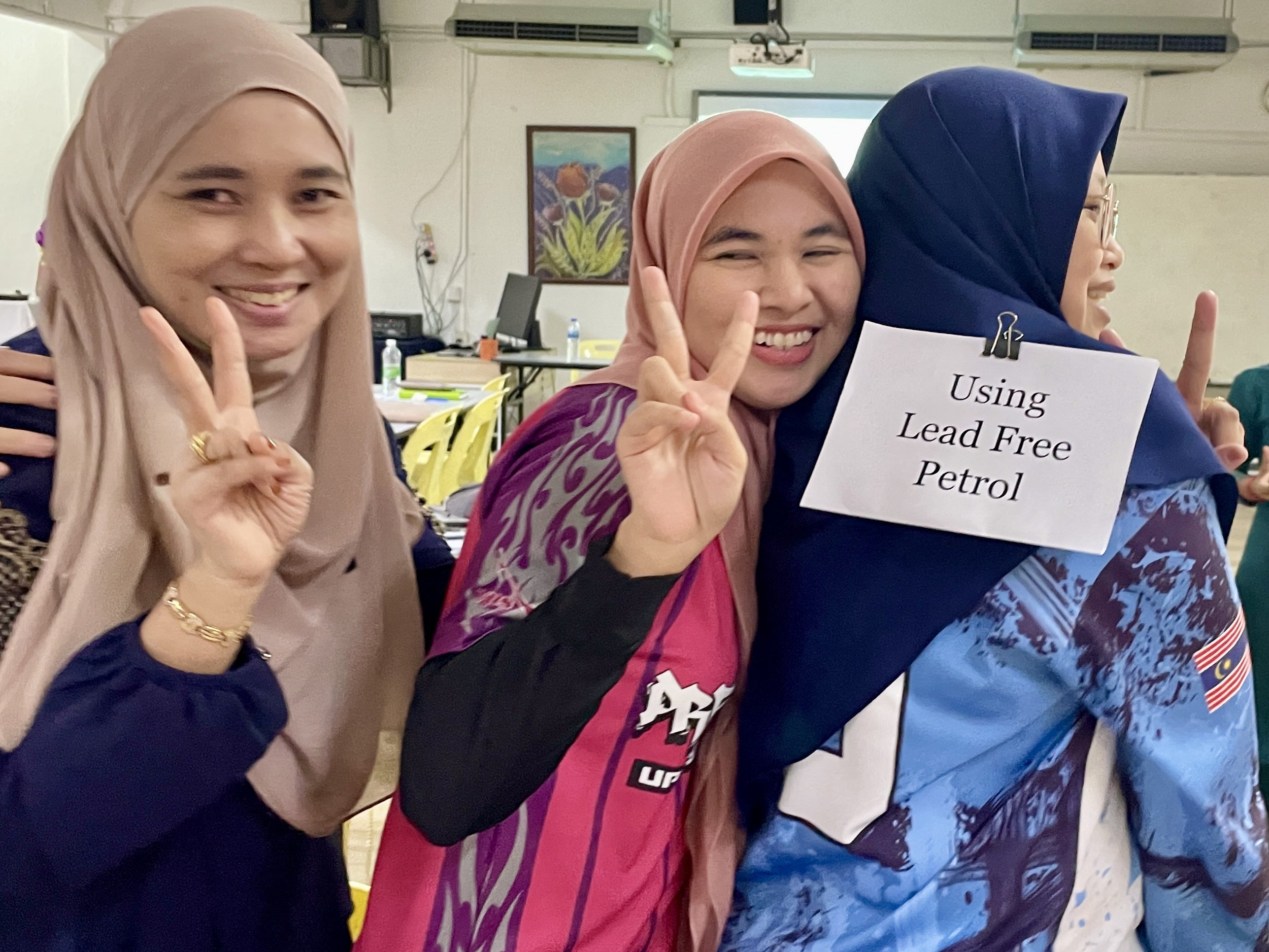Mission 4.7 Malaysia celebrates Earth Day by kicking off its ESD teacher training pilot
On Earth Day, April 22, the UN Sustainable Development Solutions Network (SDSN) was proud to kick off its Mission 4.7 Malaysia ESD Teacher Training pilot at SMK St. Mary in Kuala Lumpur.
Teachers from SMK St. Mary participate in an ice breaking exercise.
The pilot, conducted in partnership with the Malaysian Ministry of Education, marks the latest phase of the Mission 4.7 Malaysia project’s work to mainstream Education for Sustainable Development (ESD) into the Malaysian public education system.
Developed by Dr. Subarna Sivapalan, Associate Professor of Education and Sustainability & Transformational Education Research Cluster Lead at the University of Nottingham Malaysia, and Prof. Esther Daniel, Honorary Professor at Universiti Malaya, the Mission 4.7 Malaysia training curriculum consists of five sequential, highly-engaging modules, delivered in person to the entire school community. This unique structure encourages teachers to accumulate ESD knowledge and skills over time, and allows them to reflect on and test out new pedagogical approaches between training sessions. The structure is also designed to involve every teacher within a school environment, departing from the traditional cascading approach that typically relies on selected representatives, thereby fostering an interdisciplinary perspective and promoting a comprehensive, school-wide commitment to ESD.
The teacher training program is the result of the team’s initial research into the state of ESD in the Malaysian education system, which found that, while ESD themes are present in policy documents and Ministry rhetoric, there are major barriers to implementation, particularly when it comes to teacher capacity and professional development.
At SMK St. Mary, a public all-girls secondary school, 64 teachers completed the training’s first module on Awakening a Sustainability Mindset Among Educators. Guided by Dr. Subarna and Prof. Esther, the teachers learned about the origins of the modern environmental movement, with videos about Rachel Carson’s Silent Spring and the devastating effects of mercury poisoning in the Japanese city of Minamata, before discussing the transition from Environmental Education to the four pillars of Education for Sustainable Development. Interactive activities created a lively atmosphere where teachers worked together to draw concept maps, perform skits, and discuss their own awareness of sustainability concepts—activities they can use in their own classrooms!
During an activity on sustainability literacy, one group wrote and performed a poem based on the case studies that captured an understanding of the environment as a public good and the cost of industrial effluent to human and environmental health:
Langit tidak lagi seindah biasa,
DDT, mercury dari kilang semakin berbahaya,
Kesedaran udara tidak lagi digapai,
Sehingga meragut nyawa yang tidak berdosa.The skies are no longer as clear,
DDT, mercury from factories endanger,
Fresh air is no longer within reach,
Until lives, innocent, are lost along the way.Teachers from SMK St. Mary perform a poem about the Silent Spring and Minamata case studies.
SMK St. Mary teachers will convene again on 6 May for Module 2: Essential Educators Competencies for ESD.
The Mission 4.7 Malaysia teacher training pilot will take place throughout the summer at seven urban and rural public primary and secondary schools in the vicinity of Kuala Lumpur and the neighboring state of Negeri Sembilan. Feedback from this pilot will inform a revision of the training curriculum, with plans to then pilot the revised program at 50 schools across Malaysia. Ultimately, findings from the pilot and the training curriculum itself will be presented to the Ministry of Education with recommendations to roll out to all of Malaysia’s 418,000 teachers.
Mission 4.7 Malaysia is a localized project of Mission 4.7, an initiative convened by UNESCO, SDSN, the Center for Sustainable Development at Columbia University, and the Ban Ki-moon Centre for Global Citizens to advance transformative education for sustainable development globally. It is led by patrons Audrey Azoulay, Director General of UNESCO, and Ban Ki-moon, the 8th Secretary-General of the United Nations; and co-chaired by Tan Sri Sir Dr. Jeffrey Cheah, Founder & Chairman of Sunway Group, Stefania Giannini, UNESCO Assistant Director-General for Education, Professor Jeffrey Sachs, President of SDSN, and Monsignor Marcelo Sánchez Sorondo, Former Chancellor of the Pontifical Academy of Sciences and Pontifical Academy of Social Sciences, representing His Holiness Pope Francis.


